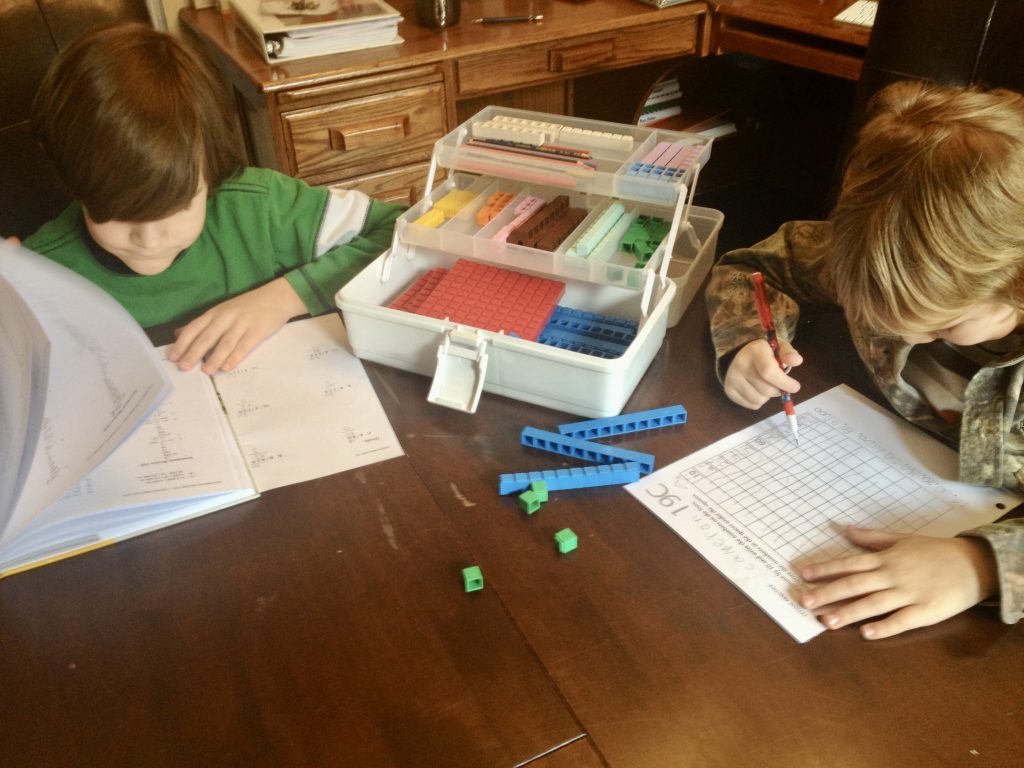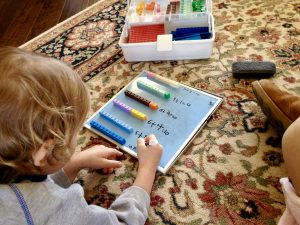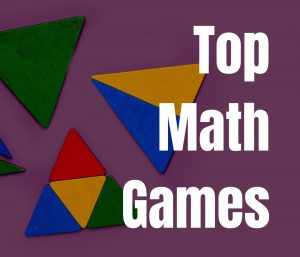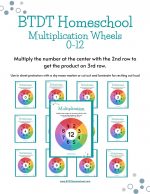025.
How Do You Successfully Teach Math?
How do you deal with math mistakes?
What if my child is anxious when teaching math?
Do homeschoolers need to give math tests?
Tune in this week while we discuss these topics and more!

Episode 025:
TWO WAYS TO LISTEN TO THIS EPISODE:
1. Click PLAY Button Above ^^ to listen here.
2. OR Listen on your favorite podcast platform:
Scroll down for your FREEBIE
Brand New to Homeschooling?
GETTING START PAGE >>
Kindergarten Page >>
High School Series >>
Show Notes
We talked in a previous episode that teaching your child to read would be the hardest part of homeschooling, but math can sometimes also be a challenge. For many parents, this was a challenging subject for them and it’s easy to be a bit nervous about teaching it, especially upper levels.

The good news is, that like with many homeschooling subjects there are tons of options from video format to scripted programs out there and you do not need to be an expert to teach math to your children. If you find it hard and frustrating to teach math, you’re not alone. Many parents find the very thought of teaching math daunting because nothing ruins your homeschooling day more than fighting about math. The whole day will be miserable if every time you pull out math there is arguing, whining, and crying.
Why does my child have math tears? (4:27)
There are some kids that hate math. So no matter what we share with you here today and all the tips and tricks to help make teaching math easier, some kids are still going to hate math. But hopefully we can help guide you and give you some tips so there are less math tears in your home.
There are different reasons why kids are discouraged by math. Some find it too hard; others find it overwhelming, and still others are so bored by it that they can hardly bring themselves to complete their assignments. I’d also caution you to make sure you aren’t projecting your own feelings about math onto your children.
Base 10 Blocks, Place Value Blocks, and Activities Set. Fun way to learn and understand place value with manipulatives. 5+
It’s also important to rule out an actual, real obstacle to math, like a learning disability. We talked about dyscalculia in our learning disabilities episode if you haven’t listened to that we will link it in the show notes. For the most part though, math obstacles are often caused by other issues.
In the middle of a lesson, your child may struggle to make connections between math concepts, or they may forget the procedures needed for a simple calculation. And this leads to a lot of tears for them and in turn, sometimes for you too. No, it’s not just the kids that are crying here! The more frustrating math time is, the less you want to teach it…which causes even more forgetting and tears. It can become a vicious cycle.
I’
And as hard as it may be for you to teach it, it’s probably even harder for your child trying to get the concepts. When your student is making a recurring mistake, it is an opportunity to pause, and then ask together, “Okay, what parts of this are we not understanding? Is there a way we might approach this differently?” Remember that when things sometimes get too hard, it is ok to walk away and come back to it later. Sometimes that magically leads to understanding. But eventually, we are going to have to get back to the topic at hand.
Mathemagical World – Addition & Subtraction Math Board Game. Includes Two (2) Levels of Difficulty and Speed Ages 5+
Eight (8) Unique Magic Worlds: Desert Island, Dinosaur Island, Pirate Island, Zombie Island, Unicorn Island, Ice Island, Dragon Island, and Ninja Island!
Instead of beating themselves up every time they get something wrong or make a mistake, you want to teach them to see math mistakes as opportunities to evaluate, improve, and learn. This will equip them with a skill that is useful for all of life. Recognizing mistakes is something that is extremely important in math because this is one place where you can’t have a partially incorrect answer. It’s either going to be right or wrong. Sometimes you really need to slow down and look at where mistakes are happening and why.
It’s also important to model working through mistakes. When you do this, you are empowering students to become an advocate for themselves, and this is especially the case as they progress into the upper levels of math where the level can be especially challenging. And honestly, some children really breeze through some of the early math, but they may not really completely understand the concept so then when they get to things like algebra, you really need to have a complete understanding of the concepts because you aren’t going to be able to fake your way through. This is sometimes where real math anxiety hits because it’s finally gotten challenging. It’s so important when teaching the skills that you’re not just teaching memorization, and your child is really understanding the math concept.
Finding ways to model this process of turning math mistakes into opportunities for your child is so important. You spend a lot of time with your child, and they see you day in and day out, and we all make mistakes, and they see that. Use those opportunities to model that what would be otherwise considered a mistake is an important part of the learning process. Children need to know that they are in a safe place to make mistakes. Mistakes are part of the process—a place that actually celebrates those mistakes. Really, they are learning opportunities and with this mindset, your children will see they are learning opportunities.
Fraction War Math Game – Fun way to Learn, Compare and Simplify Fractions. Fast-paced card game that helps players get comfortable with fractions, comparing fractions and converting fractions. Ages 7+

When doing math, you can say things like, “something doesn’t seem right here,” and “oh, I see, I see where we are having trouble.” If your child does not understand something or is having trouble with a new concept, you can help them to see that it’s not a reflection of their intelligence, potential, or skill. Learning to see mistakes as opportunities is a good skill for everyone to have. You can help them understand that the struggle to acquire knowledge is an intrinsic part of the learning process.
Finding the right level of challenge is key to helping kids enjoy math, too. There’s no satisfaction in whizzing through easy busywork problems, but it’s very frustrating to plug away at problems that are too hard. We don’t always stick to the curriculum as scripted. While there is certainly a place for rote fact memorization, it’s also fine to move on from concepts your student has mastered.
Another thing you need to think about is if you are using a program that works for both you and your child? You may want to think about evaluating what you’re using and if it’s a good fit for them. And there are a lot of programs out there. And what works for you might not be working for your child’s learning style.
How do I deal with math anxiety? (12:57)
Math anxiety can be a very normal part of the process. Again, when we talk about modeling behavior for our kids, we do want to make sure we are careful that we are not projecting our math anxieties on them. Watch the things that you may say, I hate math, I’m not good at algebra, I’ve never liked geometry. These statements can have an impact on our kids even though we don’t mean them to.
Some children who have had bad experiences with math can experience math anxiety and even panic when faced with the prospect of making mistakes or revealing they do not yet understand something. It is not uncommon for some kids to have immediate panic when they see drill sheets or workbooks filled with word problems, lengthy tests, etc.
Pizza Fraction Fun Game, 13 Fraction Pizzas, 67 Piece Game 6+
If your child experiences math anxiety, I would encourage parents to consider these possible solutions:
- Take extra time to master more difficult concepts and if your kid melts down at the site of a drill sheet, begin with a few problems and work up to more. Also, I would avoid timing drills altogether especially if math is already an issue in your home.
- Limit the time you spend on a concept that your student has not yet mastered. For example, the attention span for an 8-year-old when trying to understand something is typically around 10 minutes. A good rule of thumb is to use their age number +2 as a guide to determine what is average for your student’s age. If you want the math session to be longer, you can either switch out to reviewing math the student has already mastered or work with games or activities using known skills. This really helps build confidence. And not just in math – you can use the technique and other subjects. Ask them questions that you know that they already know. Kids love to be a ‘know it all’, so give them a shining moment! Another option might be two short sessions with a two-hour break in between.
- When introducing a new concept, coach your student toward a more positive mindset by saying something like, “Okay, this is our first day on this, let’s see if we can catch a piece of it today.” Again, limit time spent per session on the new concept to their age +2.
- Collaborate with your child to set the pace for each day. If your math plan for the day involves a worksheet, ask, “How many problems do you think you would be comfortable solving today?” or “Let’s start out with finishing the odd-numbered problems first.” This way, you can evaluate any areas which might need additional assistance. Bring them into this process and help them regain a sense of their own learning.
- I would encourage you to give your child permission to skip the questions that they don’t know how to solve. You can then say something like, “Oh good, you skipped that one. We know we don’t know that one.” This gives you an indication of what concepts to spend more time on with them while sparing them the anxiety of being penalized for knowledge that they have not mastered yet.
- Looking over the work together helps your child feel ownership of his learning and a greater sense of responsibility. Plus, you show your child that learning from mistakes is part of the learning process.
- Consider if the reason you are struggling is because of a missed concept along the way. It’s ok to work backwards to find that. Sometimes the success of later math is completely hinged on something that you learned earlier and that things built on.
- Another thing you can do to help reduce stress is to build routine into your day. We talk about this in our schedules, routines, and rhythms episode. This applies to teaching and learning as well as the rest of your daily activities. When children can depend on a schedule and consistent people involved in that schedule, they are more able to settle their minds and take risks in other areas of their lives. Create a routine, inform them about that routine, then review it with some regularity.
- It’s extremely important to model a positive attitude towards math. If you don’t like math yourself, I know it can be hard to fake a positive attitude. But we moms set the tone for our homes. When we’re dragging, everyone’s dragging. When we’re energized and positive, the kids are much more likely to be, too. A little bit of positivity. When you pull out, the math books can go a long way.
- Also, something that causes a ton of math anxiety in my house can be remedied with just slowing down. I can’t tell you how many times we’ve gotten hung up on a math problem, turned to anger, and then done something really dumb like angrily write a number from the first part of a multi part problem incorrectly, just because we are in a hurry to get it over with. Don’t do that. Slow down.
- Bust out the teacher’s guide gathering dust on the shelf. They are a wealth of useful information! Most will help you understand the main objective of the lesson and show you some ways to demonstrate the concept. Some will even provide games and activities to reinforce what your child is learning and add some fun to your math time. Learning concepts with games and making it a fun time rather than drill and kill can completely turn your home around.
We’ve always been big gamers, and have used games in our homeschool from the very beginning. A lot of homeschoolers use the term “gameschooling” when incorporating games into their homeschool. Games are a fantastic way to solidify a concept – especially in math! So we’ve taken all of our favorite games and organized them per concept for you.
Enjoy one of our TOP MATH GAMES when you need to take a break from the worksheets and solidify concepts:

We’ve categorized our TOP MATH GAMES list per concept
- Shape, Color, Pattern
- Counting
- Place Value
- Telling Time
- Money Management and Investing
- Addition and Subtraction
- Multiplication and Division
- Equations
- Fractions
- Mental Math
- Logic and Strategy
Games are a great option for teaching math, reinforcing math concepts, or just taking a break from boring worksheets!
We also really like this set of books:
The goal is to lessen stress, embrace mistakes, and provide your anxious student with many small victories. Through these kinds of processes, you and your student will begin to realize how to find learning success with limited anxiety. Not everything about learning will be fun, some things you do have to power through, but knowing how to advocate for their own learning process is a skill that will assist them in becoming lifelong learners and enable them to reach their full individual potential.
Should I give my child a math test? (26:18)
This is going to depend on a lot of things. And opinions are going to vary on this topic. Where are you on your homeschool journey? If you are brand new to homeschooling out of a school environment, you may want to consider testing just to get an idea of where your student is and if perhaps there are some learning gaps that you need to work on before advancing. Many homeschool curriculums do have their own placement tests that you can use for this.
Testing in general can be a tricky concept because often, if you aren’t actually teaching to a test, testing isn’t always going to be an accurate representation of what your student actually knows. I, personally, do not recommend taking a test until your child has demonstrated mastery. If they need extra time to achieve mastery, then give them extra time. Another great benefit of homeschooling. You can move at your child’s pace.
Prime Climb– Easy to learn, and endlessly replayable, thanks to dynamic mix of strategy and luck. Learn and master multiplication, division, factorization and prime number concepts. This is a fun and favorite game in our house! 10+

We love a mastery approach. The “wait for mastery” approach to testing teaches them to develop an understanding of what they need to be prepared for on an exam. This sets your child up for success in testing so when they see the word “test” at the top of the page, they feel confident in their ability to tackle it.
When there are errors on the test, try to keep them in the same perspective you would with daily work. When working through mistakes you can ask: Were multiple problems missed that use the same concept? If so, this might be an indication that they need to revisit a concept for some additional practice. Did they rush through it? Were there distractions? It might indicate that they were tired or not feeling well that day, which might have made it hard to focus. By asking these questions and having a conversation about the errors, you can again reinforce that mistakes are an opportunity for growth. Together you’ll learn and make decisions regarding next steps for continued success in both daily work and test prep.
Adsumudi Math Game – The Monstrously Fun, Smart Game for Kids to Practice Multiplication, Division, Addition and Subtraction – Great for Kids Ages 8-12

Celebrate Accomplishments
When your child accomplishes something especially hard, like mastering a new concept, do something fun to celebrate! The more that you and your child embrace the perspective that mistakes are opportunities to grow, the more positive the learning process will become for both of you. I’m confident that your student will grow to feel like math is something they can do, and possibly even enjoy!















